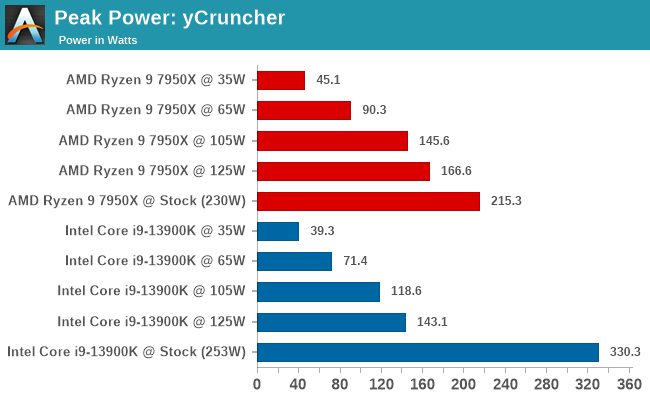No, different than the graphs I'm posting. Try a little harder and maybe you can understand them.Completely different from the imaginary stuff you are making up, yup.
Because you can dial back the 7950X's power limits and still be left with a disproportionate improvement. That only works because its power scaling is not linear. If it were, then the performance improvement at ISO power would be 0, however the graphs I posted show you only lose about 5% of performance between stock (230 W) and 105 W.I said that the 7950x uses 45% more power than the 5950x for just as much improvement.
How is power to performance scaling on the 7950x alone even relevant to this?!
Apropos of absolutely nothing. The mere fact that I showed AMD with a 45% performance improvement is hardly cause for you to pick a fight.The link I posted shows the 7950x using 45% more power than the 5950x, it shows exactly what I talked about.
The power-scaling graphs I've been posting show that's not remotely true. They juiced its power for an extra 5% performance or so. And you clearly do understand that, or you wouldn't have been trying to spin Raptor Lake's linear power scaling as an advantage.But that's just my point, they had to push the 7950x to use so much more power because that was the only way for them to get any performance improvement.
It's not a target - it's a limit! I get that this is kind of hard for Intel to understand, but using more power is not a good thing!From your link, the 7950x can't even reach the power target that AMD wishes that it would



